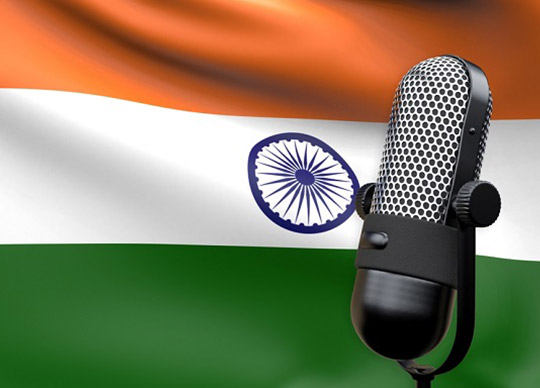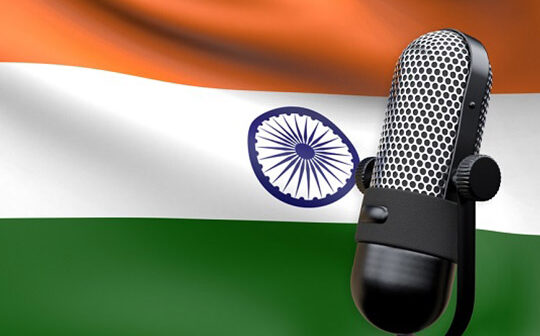
By Sarosh Bana, Mumbai Correspondent.
Unable to block overseas news outlets from commenting on its relentless excesses against the Indian public and Opposition politicians, the Narendra Modi government is stepping up action against the media at home that is widely anticipated to have deeply adverse implications for press freedom in the country.
The Editors Guild of India (EGI) has been among the many agencies that have condemned the amendments recently notified to the Information Technology Rules by the Ministry of Electronics and Information Technology (MeitY).
Terming these rules ‘draconian’, the Editors Guild stated it was “deeply disturbed by the Information Technology (Intermediary Guidelines and Digital Media Ethics Code) Amendment Rules, 2023 (IT Amendment Rules, 2023), which have been notified by the MeitY on 6 April”.
It added that the amendments give the ministry the authority to constitute a “fact-checking unit” to be vested with sweeping powers to determine what is “fake or false” with respect to “business of the Central Government”.
The so-called fact-checking unit will also be empowered to issue instructions to social media intermediaries or SMI (such as Twitter, Facebook, etc.), and Internet and other service providers, to not host such content or take it out if it has been published.
Rule 3(1)(b)(v) of the amended IT Rules obliges the SMIs to inform their users to not ‘host, display, upload, modify, publish, transmit, store, update or share any information identified as fake or false or misleading by [a]fact check unit of the Central Government’ in respect of ‘any business of’ the Union government.
SMIs failing to comply will be likely to lose their immunity from any civil or criminal liability as intermediaries for any third-party content hosted on their platforms.
Section 79 of the Act reads that intermediaries are immune from hosting third-party data, information, or communication, provided that they observe ‘due diligence while discharging [their]duties’ under the Act – which are provided under the IT Rules.
“In effect, the government has given itself absolute power to determine what is fake or not, in respect of its own work, and order take down,” the Editors Guild noted. “The so-called ‘fact-checking unit’ can be constituted by the ministry by a simple ‘notification published in the Official Gazette’.” The EGI expressed concern that there was no mention of any governing mechanism for such a fact-checking unit, as also what sort of judicial oversight would be available in the exercise of its powers, and whether there would be the right to appeal. “All this is against the principles of natural justice, and akin to censorship,” the Guild said.
Affirming that it was deeply disturbed by the newly notified rules, the Indian Newspaper Society (INS) too urged the government to withdraw the notification and hold consultations with stakeholders such as media organisations and press bodies before taking any such recourse that can have serious implications on the media and their credibility.
“The Indian Newspaper Society is constrained to state that the new rules would have the effect of the government or its designated agency enjoying absolute power to determine what is fake or not, in respect of its own work, and order it to be taken down,” INS pointed out. “Such power is seen to be arbitrary, as it is exercised without hearing the parties, and thus a violation of all principles of natural justice and has the effect of the complainant acting as the judge.”
The Society condemned this uncalled-for measure as “tantamount to censorship of the press, and thus a violation of the principle of freedom of expression”.
It charged the MeitY with reneging on its promise to consult media organisations and media bodies when it had been constrained to withdraw its draft amendments of January in the face of widespread criticism from media organisations.
“The new set of rules, notified on 6 April, shows hardly any significant improvement from the draft amendments put out in January 2023,” the Society asserts.
It is widely perceived that without a right to appeal or the element of judicial oversight, the government cannot sit on judgment on whether any information is “fake” or “false”, as the power to do so can be misused to prevent questioning or scrutiny by media organisations.
The government has often issued takedown notices in the past for critical opinion or commentary on social media platforms, with several having to abide with the action, and only a few like Twitter taking the issue to courts.
By threatening to remove a platform’s immunity for content that is flagged by a government unit, the government can brazenly undermine the people’s right to speech and expression on online platforms.
This also impinges on the national press’s role of being an effective watchdog in a democracy, though Article 19 of the Constitution clearly guarantees the freedom of speech and expression.
Electronics and IT Minister Rajeev Chandrasekhar affirms, however, that the government-notified amendments to the Information Technology (Intermediary Guidelines and Digital Media Ethics code) rules, 2021, will ensure an open, safe, trusted and accountable internet.






